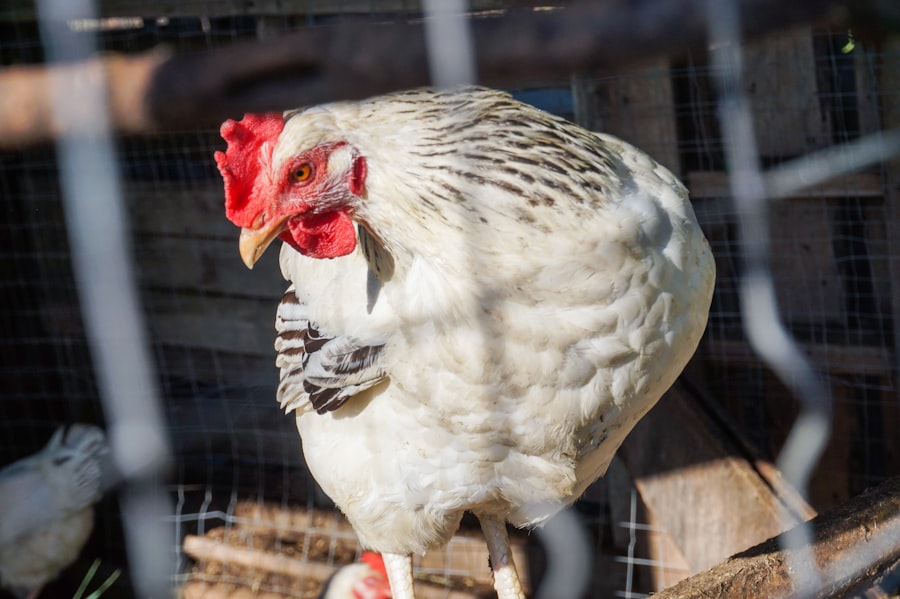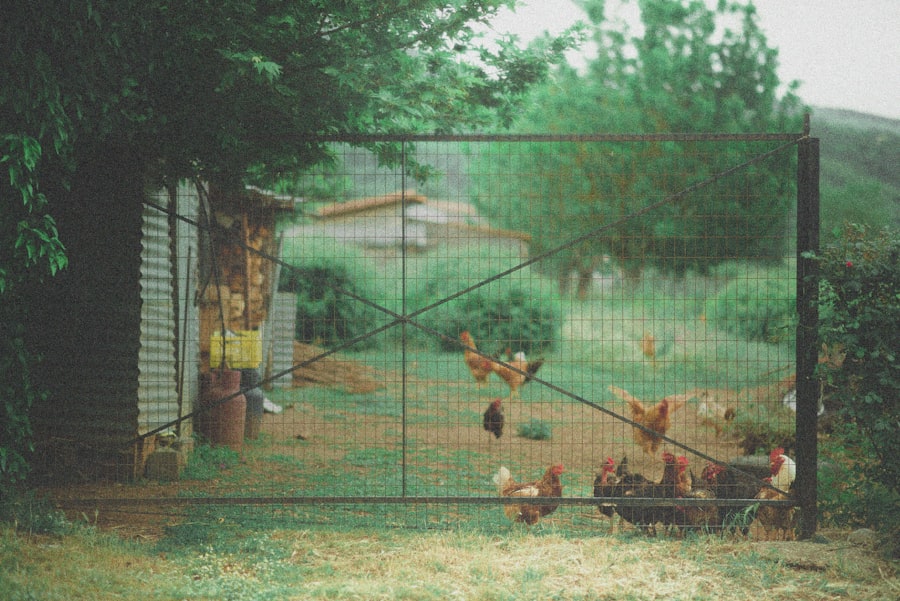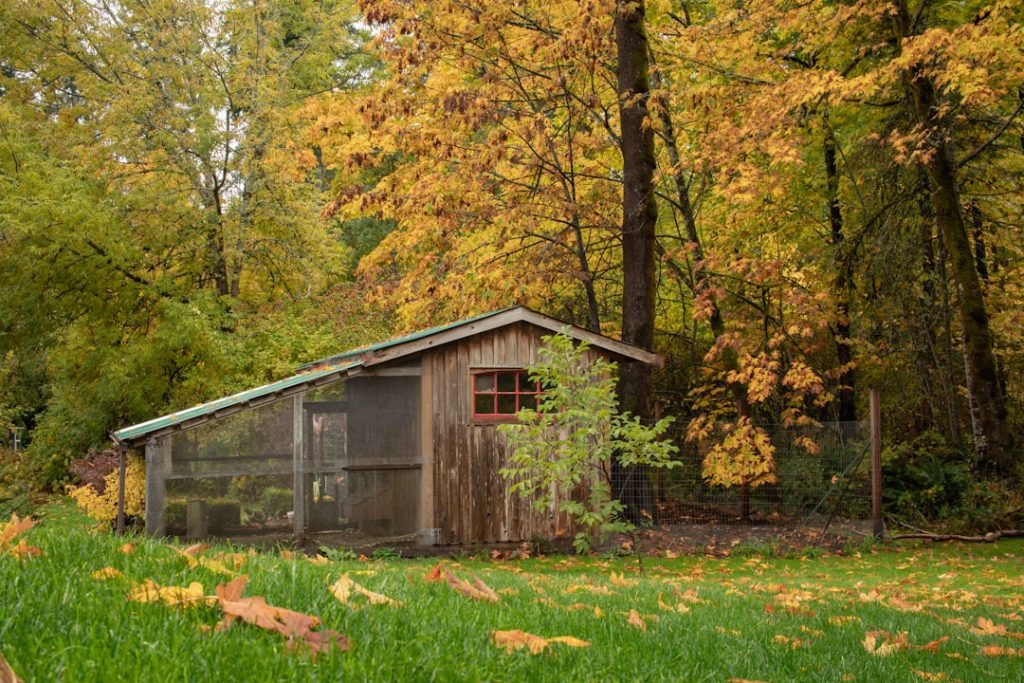When selecting a chicken breed for backyard keeping, several factors should be considered. Climate is a crucial element, as some breeds are better adapted to cold weather, while others thrive in warmer conditions. The intended purpose of keeping chickens is also important, whether for egg production, meat, or as pets.
Different breeds have varying egg-laying capacities, meat yields, and temperaments. The Rhode Island Red is a popular choice for backyard chicken keepers. This breed is known for its excellent egg-laying abilities, hardiness, and friendly disposition, making it suitable for beginners and families.
Plymouth Rocks are another favored breed, recognized for their egg production and calm temperament. For those seeking a dual-purpose breed, the Orpington is notable for its large size, gentle nature, and good egg production. It is essential to research thoroughly and select a breed that aligns with specific requirements and environmental conditions.
Factors such as space availability, local regulations, and personal preferences should also be taken into account when choosing a chicken breed for backyard keeping.
Table of Contents
- 1 Building a secure coop and run for your chickens
- 2 Providing proper nutrition and water for your chickens
- 3 Ensuring proper healthcare and hygiene for your chickens
- 4 Managing the daily care and maintenance of your chickens
- 5 Understanding local regulations and ordinances for keeping chickens
- 6 Enjoying the benefits of keeping chickens in your yard
- 7 FAQs
- 7.1 What are the basic requirements for keeping chickens in my yard?
- 7.2 How much space do chickens need in a yard?
- 7.3 What should I feed my chickens?
- 7.4 How do I keep my chickens safe from predators?
- 7.5 What are some common health issues for chickens and how can I prevent them?
- 7.6 Do I need a permit to keep chickens in my yard?
Key Takeaways
- Consider the space available, climate, and purpose (eggs, meat, pets) when choosing a breed of chicken for your yard
- Build a secure coop and run with proper ventilation, predator-proofing, and space for nesting and roosting
- Provide a balanced diet of chicken feed, fresh water, and occasional treats like fruits and vegetables
- Regularly check for signs of illness, keep the coop clean, and practice good hygiene to prevent disease
- Daily care includes feeding, watering, collecting eggs, and checking for any issues with the chickens
- Research and comply with local regulations on chicken keeping, including zoning, noise, and waste disposal
- Enjoy fresh eggs, natural pest control, and the companionship of your chickens in your yard
Building a secure coop and run for your chickens
Coop Size and Layout
The general rule of thumb is to allow at least 2-3 square feet of space per chicken inside the coop, and 8-10 square feet per chicken in the outdoor run.
Coop Features and Ventilation
The coop should also be well-ventilated to prevent moisture buildup and provide fresh air for the chickens. Additionally, it’s important to include roosting bars and nesting boxes inside the coop to provide a comfortable and safe space for the chickens to rest and lay eggs.
Outdoor Run Considerations
When it comes to the outdoor run, it’s important to ensure that it is securely fenced to prevent predators from getting in and chickens from getting out. The fencing should be buried at least a foot into the ground to prevent digging predators from gaining access. It’s also important to provide some form of shelter within the run, such as a covered area or trees, to provide shade and protection from the elements. Additionally, providing enrichment such as perches, dust baths, and toys can help keep the chickens entertained and reduce boredom-related behaviors.
Ultimately, a secure coop and run are essential for keeping chickens safe and healthy in your yard.
Providing proper nutrition and water for your chickens

Proper nutrition and access to clean water are essential for the health and well-being of your chickens. A balanced diet is crucial for egg production, growth, and overall health. A good quality commercial feed formulated specifically for chickens is a great starting point.
It’s important to provide a feed that is appropriate for the age and purpose of your chickens, whether they are laying hens, meat birds, or chicks. Additionally, providing access to fresh greens, fruits, and vegetables can help supplement their diet and provide additional nutrients. It’s important to avoid feeding chickens foods that are toxic to them, such as avocado, chocolate, and onions.
Access to clean water is also crucial for chickens. Chickens need constant access to fresh water to stay hydrated and healthy. It’s important to regularly clean and refill their water containers to prevent the growth of harmful bacteria.
In colder climates, it’s important to prevent water from freezing by using heated waterers or regularly replacing frozen water with fresh water. Additionally, providing water in multiple locations within the coop and run can help ensure that all chickens have access to water. Ultimately, providing proper nutrition and access to clean water is essential for keeping your chickens healthy and thriving.
Ensuring proper healthcare and hygiene for your chickens
Ensuring proper healthcare and hygiene for your chickens is essential for preventing illness and maintaining their overall well-being. Regular health checks are important for monitoring the condition of your chickens and catching any potential issues early on. This includes checking for signs of illness or injury, monitoring their weight, and inspecting their feathers and skin.
Additionally, it’s important to keep an eye on their egg production and behavior to detect any changes that may indicate a health issue. Maintaining good hygiene in the coop and run is also crucial for preventing disease and parasites. Regularly cleaning the coop by removing soiled bedding, droppings, and old food can help prevent the buildup of harmful bacteria.
It’s also important to regularly inspect the coop for signs of pests such as mites or lice, which can be treated with appropriate medications if necessary. Providing dust baths for the chickens can also help them naturally control parasites and keep their feathers clean. In terms of healthcare, it’s important to have a plan in place for addressing any potential health issues that may arise.
This may include having a relationship with a local veterinarian who is experienced in poultry care or having basic medical supplies on hand for treating minor injuries or illnesses. Ultimately, ensuring proper healthcare and hygiene for your chickens is essential for keeping them healthy and happy in your yard.
Managing the daily care and maintenance of your chickens
Managing the daily care and maintenance of your chickens requires dedication and attention to detail. Daily tasks include checking on the chickens to ensure they have food and water, collecting eggs, and monitoring their overall health and behavior. It’s important to establish a routine for feeding and watering the chickens to ensure they have access to fresh food and water at all times.
Additionally, regularly collecting eggs can help prevent them from being broken or eaten by the chickens. In terms of maintenance, regularly cleaning the coop and run is essential for preventing disease and maintaining a clean living environment for the chickens. This includes removing soiled bedding, droppings, and old food from the coop, as well as regularly raking or turning over the soil in the outdoor run.
It’s also important to regularly inspect the coop for any signs of wear or damage that may need repair. In addition to daily care and maintenance tasks, it’s important to spend time with your chickens to monitor their behavior and provide enrichment. Spending time with your chickens can help you build a bond with them and make it easier to detect any changes in their behavior that may indicate a health issue.
Providing enrichment such as perches, dust baths, and toys can also help keep the chickens entertained and reduce boredom-related behaviors. Ultimately, managing the daily care and maintenance of your chickens requires dedication and attention to detail.
Understanding local regulations and ordinances for keeping chickens

Researching Local Laws and Regulations
Before bringing chickens into your yard, it’s crucial to research and understand local regulations and ordinances. Many cities and towns have specific rules regarding the number of chickens allowed, coop size and placement, noise regulations, and more. Failure to comply with these regulations can result in legal issues.
Permits, Licenses, and Zoning Restrictions
Some areas may require a permit or license to keep chickens, while others may have specific zoning restrictions that dictate where coops can be located on your property. Additionally, some areas may have specific rules regarding roosters due to noise concerns. It’s essential to thoroughly research local regulations to avoid any potential legal issues.
Neighborhood and Homeowner Association Rules
In addition to local regulations, it’s also important to consider any potential neighborhood or homeowner association rules that may impact your ability to keep chickens in your yard. Some neighborhoods may have specific rules regarding livestock or animals that could impact your ability to keep chickens.
Enjoying the benefits of keeping chickens in your yard
Keeping chickens in your yard can bring a wide range of benefits beyond just fresh eggs. Chickens can help reduce food waste by eating kitchen scraps such as fruit peels, vegetable trimmings, and leftover grains. They also provide natural pest control by eating insects such as slugs, snails, and ticks that can be harmful to gardens or yards.
Additionally, spending time with chickens can be therapeutic and reduce stress levels. Many people find joy in caring for their chickens and watching them roam around the yard. Chickens can also provide educational opportunities for children by teaching them about responsibility, animal care, and where food comes from.
Furthermore, having fresh eggs from your own backyard can be incredibly rewarding both in terms of taste and knowing where they come from. Many people find that eggs from backyard chickens have richer flavor and brighter yolks than store-bought eggs. Overall, keeping chickens in your yard can bring a wide range of benefits beyond just fresh eggs.
They can provide natural pest control, reduce food waste, offer therapeutic benefits, provide educational opportunities, and offer delicious eggs straight from your backyard. In conclusion, keeping chickens in your yard can be a rewarding experience that requires careful consideration of breed selection, coop design, nutrition, healthcare, daily care, local regulations, and ordinances. By choosing the right breed of chicken for your specific needs and environment, building a secure coop and run, providing proper nutrition and water, ensuring proper healthcare and hygiene, managing daily care and maintenance tasks, understanding local regulations, and ordinances, you can enjoy the many benefits of keeping chickens in your yard while ensuring their safety and well-being.
Whether you’re looking for fresh eggs or simply enjoy spending time with these feathered friends, keeping chickens in your yard can be a fulfilling experience that brings joy and satisfaction to both you and your family.
If you’re considering keeping chickens in your yard, you may also want to think about what kind of coop is best for them. Poultry Wizard has a helpful article on what kind of coop is best for chickens that can provide valuable information on creating a safe and comfortable living space for your feathered friends. Additionally, they offer chicken coop run plans to help you design a suitable outdoor area for your chickens to roam and exercise.
FAQs
What are the basic requirements for keeping chickens in my yard?
To keep chickens in your yard, you will need a secure coop or shelter, access to fresh water, proper nutrition, and a safe outdoor space for them to roam.
How much space do chickens need in a yard?
Chickens need at least 2-3 square feet of space in the coop and 8-10 square feet of outdoor space per chicken to roam and forage.
What should I feed my chickens?
Chickens need a balanced diet of commercial chicken feed, supplemented with kitchen scraps, grains, and greens. They also require access to grit for digestion.
How do I keep my chickens safe from predators?
To keep chickens safe from predators, ensure that the coop is secure and predator-proof, and consider using fencing, motion-activated lights, and guard animals like dogs or geese.
What are some common health issues for chickens and how can I prevent them?
Common health issues for chickens include parasites, respiratory infections, and egg-laying problems. To prevent these, provide a clean and dry living environment, regular health checks, and access to veterinary care when needed.
Do I need a permit to keep chickens in my yard?
Some cities and municipalities require a permit to keep chickens in residential areas. Check with your local government or homeowners’ association for any regulations or restrictions.
Meet Walter, the feathered-friend fanatic of Florida! Nestled in the sunshine state, Walter struts through life with his feathered companions, clucking his way to happiness. With a coop that’s fancier than a five-star hotel, he’s the Don Juan of the chicken world. When he’s not teaching his hens to do the cha-cha, you’ll find him in a heated debate with his prized rooster, Sir Clucks-a-Lot. Walter’s poultry passion is no yolk; he’s the sunny-side-up guy you never knew you needed in your flock of friends!







